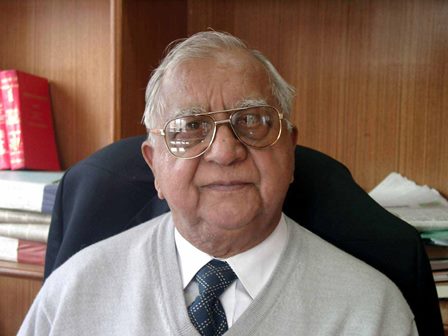An independent people’s report on Prime Minister Narendra Modi’s 100 days in Government by a US-based raises some uncomfortable questions.
 by Humra Quraishi
by Humra Quraishi
I have been wondering how America will react to Indian Prime Minister Narendra Modi’s arrival on US shores. Amidst the hype surrounding his visit, came the news that the Ghadar Alliance, a US-based educational watchdog coalition created by concerned citizens in the wake of the recent BJP victory, is releasing a report on September 26.
The report is touted as a comprehensive 100-day report evaluating the performance of the Modi Government’s first 100 days in office. Titled Fast Track To Troubled Times, the report is reportedly the first independent people’s report to be published since Modi came into office, and it identifies the economy, religious extremism and human rights as grave areas of concern.
“We have been very careful and meticulous in collecting data only from public sources to build an evidence-based and fully data-driven report,” said Raja Swamy, economic anthropologist and one of the authors of the report. “When it comes to the economy, our report shows that the new administration wants to eliminate all democratic protections in favor of corporate giveaways and ripoffs.
One example of this are the amendments that the Modi regime has proposed to the Land Acquisition Act of 2013, that do away with meaningful safeguards for those losing land, especially for India’s poor, marginal peasantry and indigenous peoples. The proposed amendments accept in toto all corporate demands and eliminate existing safeguards. From the evidence available, can we not conclude that the minimal protections for ordinary people are being wiped out to favor corporations?” he asked.
The report is replete with such detail as it compares the Modi Budget with the previous United Progressive Alliance budget, and points to such facts as the BJP government’s plan to raise four times more money through the ‘sale of State assets’ than the previous government did. The report highlights the ‘empowerment of violent gangs of the supremacist Hindu Right under the Modi dispensation’. In the three months since Modi took charge, there have been over 600 cases of anti-minority violence in one single state, Uttar Pradesh, and several cases of forced ‘reconversion’ of Dalits (India’s so-called untouchable castes) to Hinduism.
“If there is one thing that is clear already, it is that under Modi, Hindu supremacist gangs will virtually rule the streets. There is a palpable sense of insecurity today among minorities, Dalits and women as non-State actors have turned hyper-aggressive, and Modi, through his consistent silence and refusal to hold offenders accountable, has given tacit approval,” said Anu Mandavilli of the San Jose Peace and Justice Center and a co-founder of the Ghadar Alliance.
“The privileging of economic growth as the primary goal functions to dictate an amnesia about Modi’s Gujarat record with US investors eager to capitalise on the Indian market,” added Professor Snehal Shingavi, also a co-founder of the Alliance. “And for many of us born and raised in a racialised US context, the targeting of minorities in India by Hindu reactionaries uncomfortably corresponds to our own experiences with anti-immigrant racism here.”
The report also compares the first 100 days of the new government with Modi’s 12 years of rule in Gujarat. “Examining Modi’s first 100 days in the context of his record in Gujarat reveals a number of disturbing parallels, and these parallels legitimise the report’s predictive capacity,” said Mandavilli.
The report is the first in a series of actions that the Ghadar Alliance is initiating to keep a consistent and critical focus on the BJP/RSS from outside India. The Founding Committee of the Alliance is intergenerational, of multiple faiths, of diverse professions and geography. “We represent the true diversity of India rather than the narrow homogeneity of Modi supporters lining up to welcome him here in the US,” said Dr Swamy.
Humra Quraishi is a senior journalist based in Gurgaon. She is the author of Kashmir: The Untold Story and co-author of Simply Khushwant. ‘Enough Said’ looks at current social, political and literary trends in the country.




